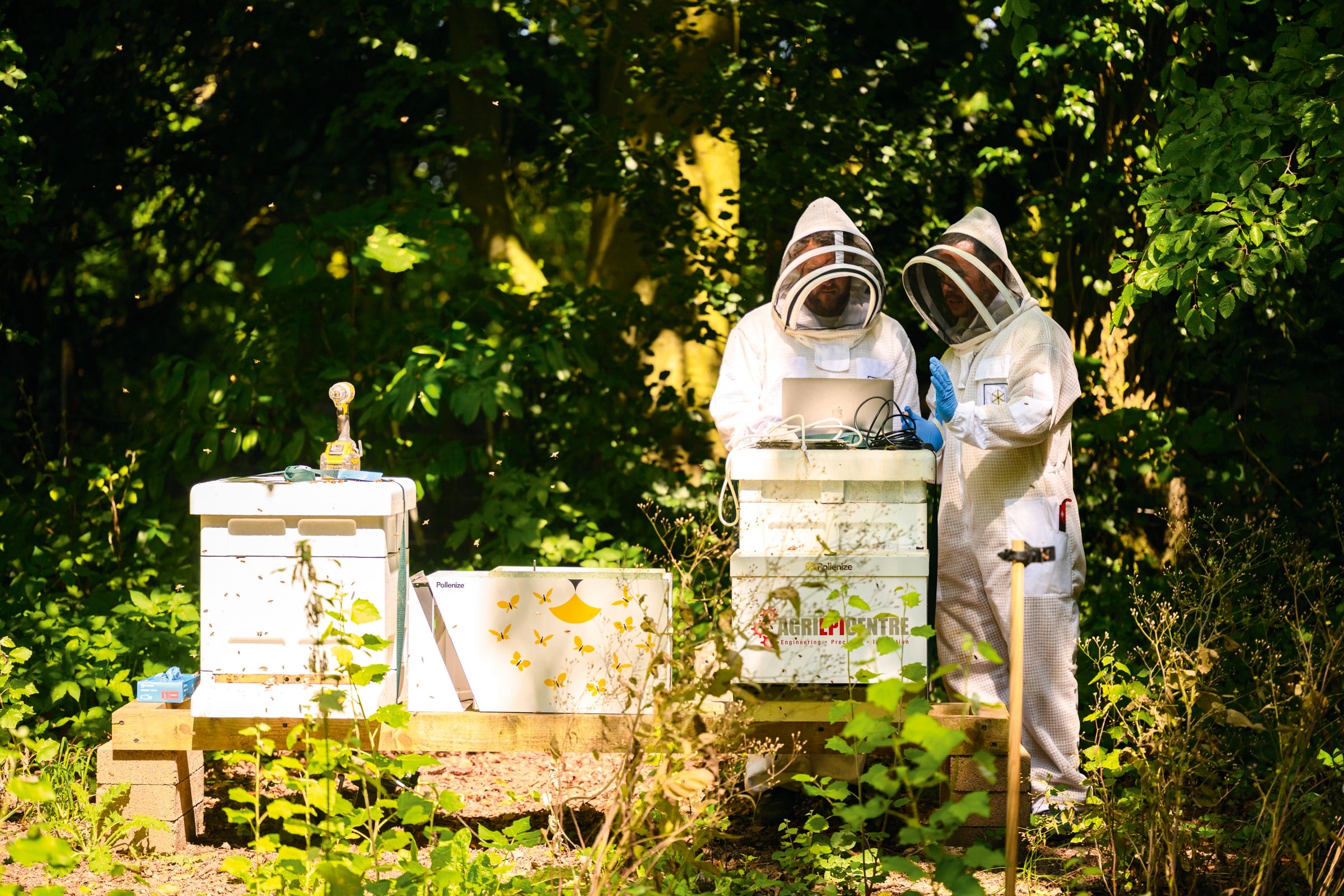A switch is flicked, and a pharmacy sign flickers to life with a green glare. But this clinic prescribes seeds, not pills. The glass jars lining the shelves of this compact unit in central Plymouth, on the south coast of England, are filled with cow parsley, red clover, and corn chamomile.
It’s owned by Pollenize, a social enterprise that uses data analysis to diagnose and treat deficiencies in honeybees. With habitat loss, climate change, agrochemicals, and a new wave of invasive hornets hounding Britain’s bee colonies, its founders believe artificial intelligence could be an unlikely trump card.
Inside a honeybee hive. Worker bees are sterile females, and live for just six weeks in a colony of tens of thousands.Photograph: Chris Parkes
When childhood friends Matthew Elmes and Owen Finnie cofounded Pollenize in 2018, AI was not part of the plan. As longtime sufferers of hay fever, their foray into beekeeping was just a stab at soothing their swollen eyes and streaming nostrils.
Investing in a rumor that a teaspoon of local honey could counteract pollen sensitivity seemed worth a shot. “We didn’t fit the profile of a beekeeper,” says Elmes, who was a bricklayer in his late twenties, while Finnie worked in kitchens.
A microscope image of pollen collected from a hive. Monitoring pollen lets keepers know what’s available for bees to forage from.Photograph: Chris Parkes





